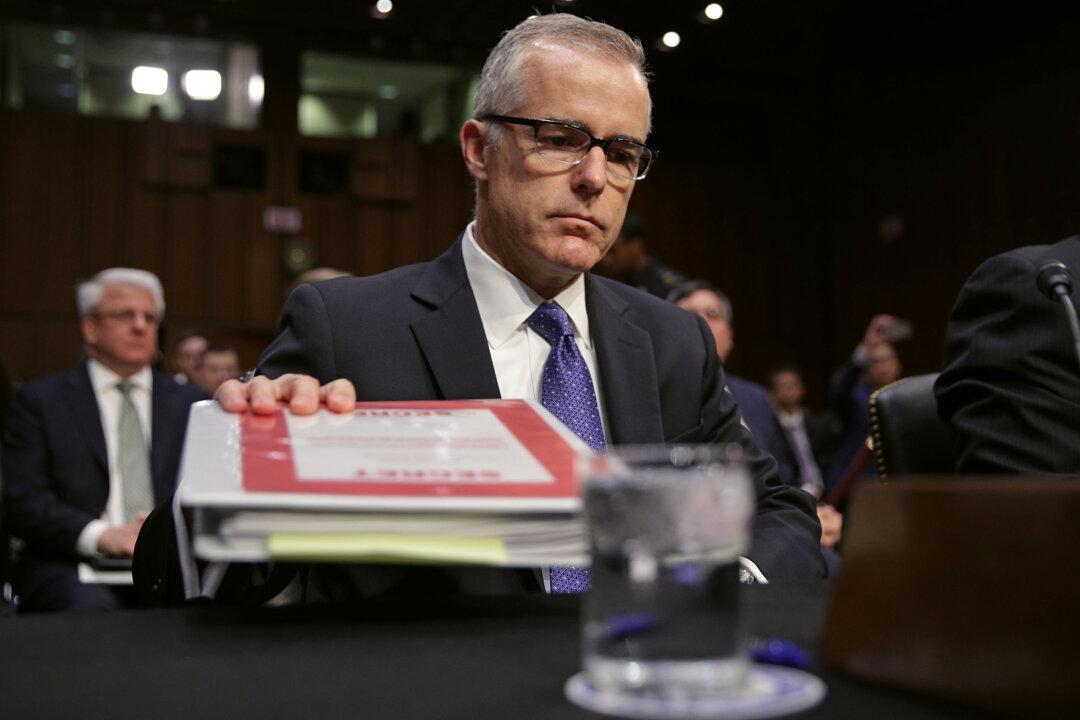Acting FBI Director Andrew McCabe kept his boss in the dark for a week in May 2017 about the existence of highly consequential memoranda drafted by the then-recently fired FBI director, James Comey, until after the documents had been leaked to the media, according to Rod Rosenstein, who was the deputy attorney general at the time.
Rosenstein, who appointed special counsel Robert Mueller to take over the FBI’s investigation of Russian interference in the 2016 election, told lawmakers on the Senate Judiciary Committee on June 3 that “McCabe was not fully candid with” him about the existence of the memos, the leak of which served as the catalyst for the appointment of the special counsel.





